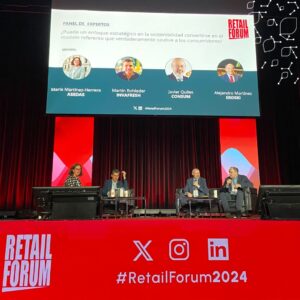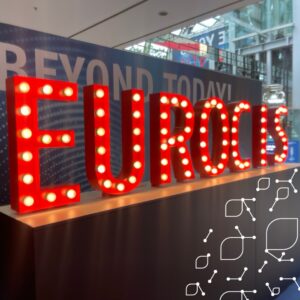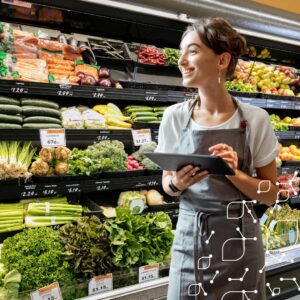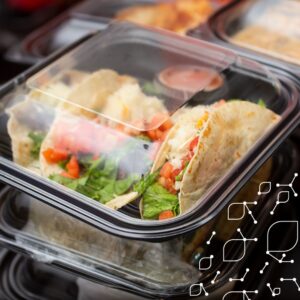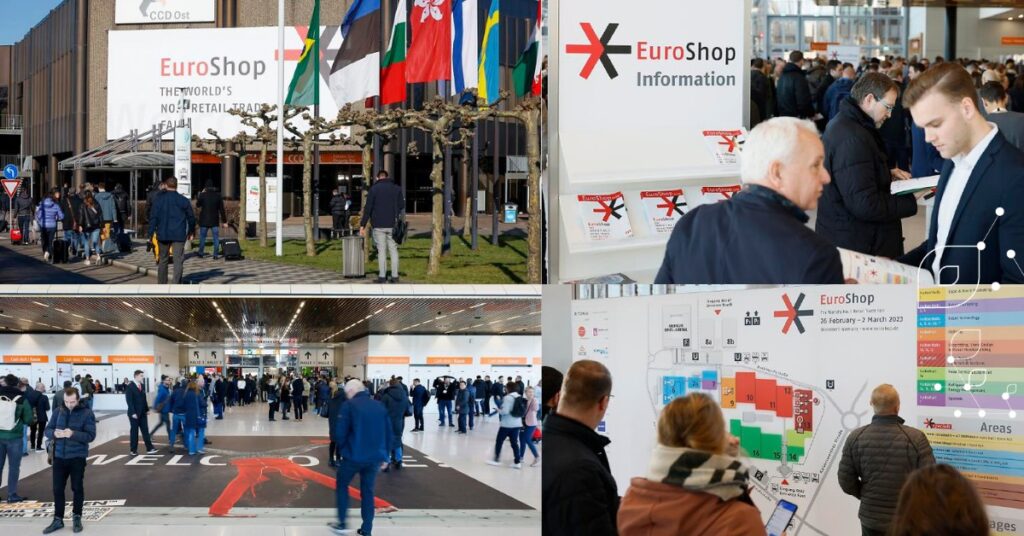
photo: Messe Düsseldorf/ctillmann
Hosted every three years in Dusseldorf, Euroshop 2023 is the world’s #1 retail trade fair, where over 2,000 exhibitors and 90,000 attendees gather to showcase and learn about the latest trends in retail. From connected technology to retail marketing to start-ups disrupting business as we know it, there were many insights and learnings to be had.
Although hosted in Europe, Euroshop attracts a global audience and dives into trends impacting retail across many countries. While there was a lot of great content shared at Euroshop, we highlight – as we do with the events we attend – our three key takeaways.
Sustainability
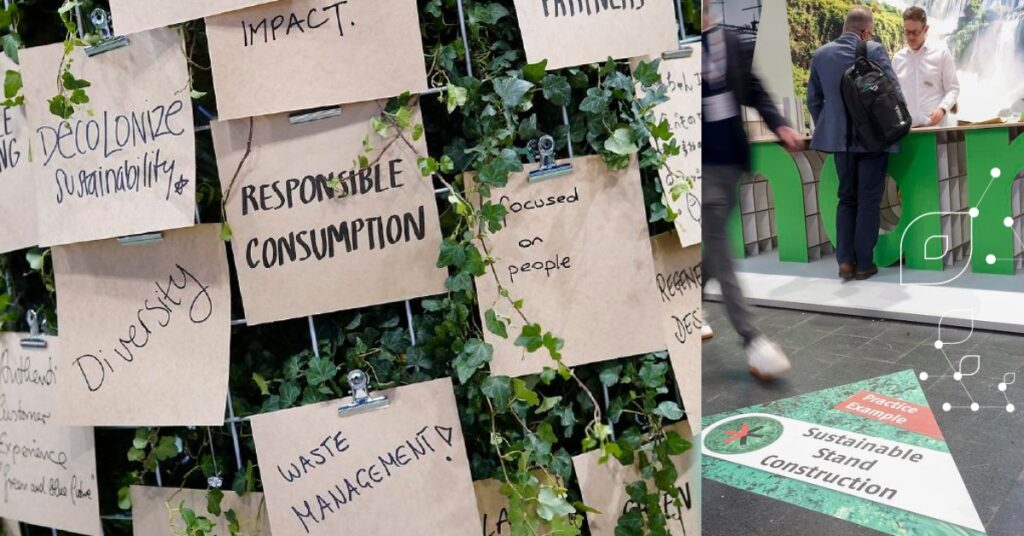
photo: Messe Düsseldorf/ctillmann
It is well established that Europe has taken a more progressive approach to sustainability than other regions around the globe. A key reason is that space has always been a premium for many European countries, forcing Europeans to be more aware of humans’ negative effects on the planet. Case in point, per capita CO2 emissions are three times higher in the U.S. than in France.
This focus on sustainability was clearly on display at Euroshop, with many exhibitors showcasing how technology can make a measurable difference to sustainability initiatives and change our consumption patterns.
Food waste accounts for 9% of greenhouse emissions. And in addition to contributing to greenhouse emissions, food waste contributes significantly to profit erosion for grocery retailers. In the food waste hierarchy, technology solutions must start at the top, focusing on reducing at the source, not fixing at the end. The question should not be what to do with excess food at the store level but ensure that the question does not need to be asked in the first place. And that is where technology plays an essential role. From intelligent demand forecasting incorporating internal and external factors to optimizing markdowns to dynamic pricing, technology can optimize the store experience for retailers and customers alike. To deliver a fresher shopping experience while contributing to improving margins and making meaningful changes to the environment.
RFID
Another area of focus at Euroshop was RFID, or radio-frequency identification, a technology that uses radio waves to identify a tagged object. There are many commercial and industrial applications, from tracking items along the supply chain to controlling inventory to reduce loss.
The global RFID market is projected to reach $31 billion by 2026, representing a 2019-2026 compound annual growth rate of 10.3 percent. As for direct impact in the grocery segment, that might be harder to predict due to relatively high entry costs.
However, specific to grocery retail, one session at Euroshop surmised an RFID use case that would gain traction: delivering a frictionless grocery shopping experience by helping consumers find and purchase items without having to stand in line. Something that has been trialled by Amazon Go in the United States with its Just Walk Out Shopping experience. The technology can also make grocery operations more efficient as RFID codes can be scanned all at once, unlike barcodes, which must be scanned individually, exhausting already finite in-store labour resources. One of the shopping experience changes coming out of the pandemic is the demand from customers for easy, fast, and contactless experiences. RFID may benefit from this shift and gain traction in grocery retail.
Emerging Technology
As with any show, there is always much focus on emerging technology and trends. Always thought-provoking, two emerging technologies that stood out were the applicability of the Metaverse and digital twins in the future of retail.
Specific to grocery retail, the concept of digital twins is gaining prominence. A digital twin is an online replica of a business’s operations providing information on current business performance and the likely impact of future stresses or hazards. Digital twins have become increasingly important in managing complex real-world systems such as engineering projects.
At Euroshop, there was discussion on how grocery retailers rely on past data to make decisions. Still, the digital twin concept allows retailers to focus on potential future outcomes depending on what actions are taken today. Coupled with intelligent demand forecasting and prescriptive analytics, digital twins can serve as a decision-making assistant for grocery retailers, helping them to make the right decisions to drive the proper outcomes.
Another emerging trend highlighted at Euroshop and related to the concept of digital twins in that it’s a digital representation of the physical world is the Metaverse. While there are many interpretations of the Metaverse, including the inevitable evolution of the Internet, it is a single, shared, immersive, persistent, 3D virtual space where humans experience life in ways they could not exist in the physical world. For retail, the Metaverse in a word is “Phygital” – the integration of physical and digital elements in the shopping experience.
While the concept of the Metaverse is very nascent for grocery retail, there was much discussion at Euroshop on how it could create new pathways for grocery stores to address staff shortages and increased demand while increasing revenue opportunities. Much like traditional online shopping, Metaverse commerce could capitalize on data to optimize the shopping experience, such as reminding shoppers of items they may have forgotten (such as an ingredient for a recipe based on other ingredients they have in their shopping basket) or suggesting new products to try based on their previous purchases, or even implying that perfect bottle of wine to pair with your dinner. The Metaverse means personalization for shoppers, which means increased profits for retailers.
That’s a Wrap
Euroshop provided a window into the future of technology for grocery retail. It’s always interesting to talk about the applicability of such technology in today’s grocery retail world and how technology can address the challenges faced by retailers today and in the future.
Learn more about how the Invafresh Fresh Retail Platform supports sustainability initiatives.



